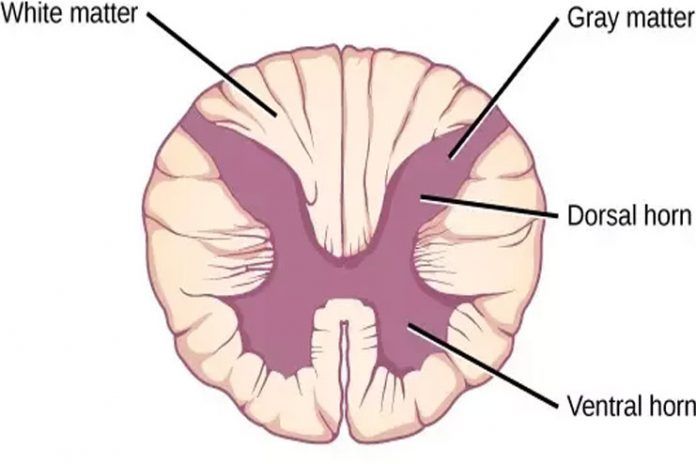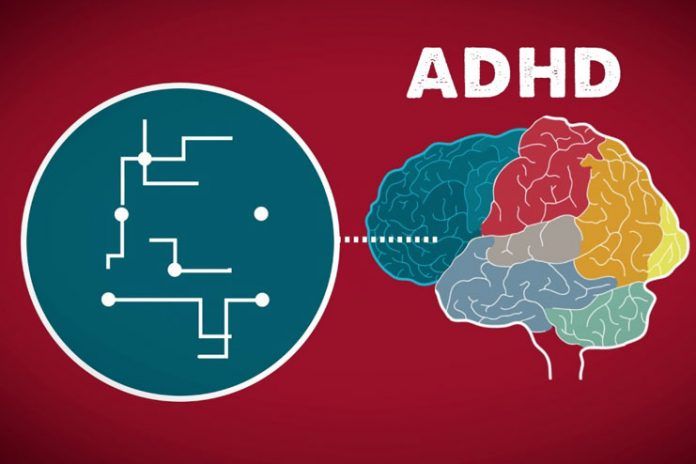Affiliate Disclaimer
Some links in this article are affiliate links. We may earn a small commission if you make a purchase through these links, at no extra cost to you. We only recommend products we find useful to our readersWhile meditation may not be everyone’s cup of tea, its health benefits are compelling enough to try it. Did you know that these benefits aren’t just anecdotal but are backed by science?
Meditation enhances your mental well-being and significantly contributes to your physical health.
By the end of this article, you will have a comprehensive understanding of meditation and its many scientifically proven benefits.
How Important is Meditation?

Given that meditation greatly benefits overall well-being, it’s no surprise that more people recognize its importance daily.
It is essential not to limit the understanding of meditation to just its physical benefits but to explore its deeper aspects to discern what works and what doesn’t.
To get the best out of meditation, one must understand the basic concept of concentration and its role in the process. Concentration is crucial because it enhances the effectiveness of meditation and amplifies its benefits.
What are the Benefits of Meditation?
 When we discuss the advantages of meditation, it is interesting to share some valuable insights with you. We will strive to keep every point authenticated and support these with scientific evidence for possible accurate and reliable data.
When we discuss the advantages of meditation, it is interesting to share some valuable insights with you. We will strive to keep every point authenticated and support these with scientific evidence for possible accurate and reliable data.
1Helps Reduce Stress

The basic health benefit of meditation for individuals is stress management. In some cases, focused and intensive meditation can calm the mind and eliminate stress.
The increased amount of cortisol within the body increases cytokines, which induce inflammation. Meditation is the best way to fight this problem and to recover the normal balance of cortisol within the body.
A study conducted (R) with more than 3,500 participants proved the effectiveness of meditation, thus proving its popularity as an effective stress-relieving technique.
2Helps Combat Depression

Meditation generally has a more significant impact on mental health than physical health; thus, it is crucial to take an approach that addresses this aspect.
It has been proven that meditation can help alleviate symptoms of depression. Several studies have been conducted and confirmed this.
One study with five middle schools in Belgium involved students 13-20 years old. When students practiced mindfulness in class, symptoms of depression and anxiety went down significantly; the finding is outstanding and revolutionary in its message.
Another similar study (R) confirmed meditation as effective for a person using antidepressant medications that most are taking to fight mental illness problems.
3Subdues Anxiety

Meditation affects mental health much more profoundly than physical health, making it necessary to take an approach that addresses the former.
The truth is that meditation has proved to be one of the best remedies for depression symptoms. Many researchers have taken up and validated this benefit.
A study of five middle schools in Belgium, in which students aged 13-20, showed that mindfulness during class significantly reduced the symptoms of depression and anxiety (R). This was a monumental finding.
Another study (R) reported that meditation can be as effective as antidepressive therapies on which many depend to maintain themselves mentally.
4Increases Grey Matter Concentration

Gray matter is the dense collection of neuronal cell bodies in the brain. It is an integral part of the brain and nervous system. Gray matter is significant in various cognitive and emotional functions, so concentration is vital for optimal brain function.
One of meditation’s most scientifically recognized benefits is the increased concentration of gray matter in the brain.
Harvard neuroscientists conducted a study (R) that followed 16 subjects through an eight-week mindfulness course. The program consisted of guided meditation sessions and mindfulness integration into daily life.
Scans of the participants’ brains after the course showed a dramatic increase in gray matter concentration in learning, memory, and emotional regulation areas. These findings show that meditation can significantly impact brain structure and function.
5Triggers Better Self-Awareness

Most of us are not self-aware, but meditation can be an effective tool in developing this ability. Specific types of meditation target the development of self-awareness, which allows you to better understand your inner self and push yourself to be the best that you can be.
In the area of self-inquiry meditation, for example, the individual will particularly benefit from knowing themselves better, as this can sometimes be a bit difficult to attain.
In one trial (R), 40 elderly males and females were involved. The results showed that the subjects were not lonely or despairing after being subjected to mindfulness-based therapy. This helps show that meditation, besides enhancing self-awareness, also boosts mood.
6Improves Focus and Attention

One of the most significant advantages of meditation is that it enhances concentration and attentiveness.
Various experiments have revealed that meditation makes it much easier for individuals to concentrate and focus on tasks they are involved in.
In one study of students, the respondents were found to have enhanced cognitive abilities after embedding only 20 minutes of meditation practice in their daily lives. This shows how even a minute or two of meditation leads to noticeable mental clarity and attentiveness.
7Improves Attention Span

Another significant benefit of meditation is that it can improve attention span. Meditation can be a good way to enhance attentiveness and concentration if you are restless or find it difficult to focus. Practicing a type of meditation that suits you best can help restore and strengthen your ability to stay focused.
For people who find it hard to concentrate, meditation is a powerful tool for bringing clarity and focus to one point.
During an 8-week mindfulness course, participants’ ability to keep their attention or even rethink and reorient thoughts was significantly enhanced. This shows that mindfulness practice can enhance control over attention and better mental flexibility.
8Delays Risks of Age-Related Memory Loss

It bears mentioning that the benefits of meditation include delaying and even preventing risks considered precipitates in age-related memory loss whereby people lose their memories, such as in dementia and Alzheimer’s disease.
Several studies (R) indicate that practices like Kirtan Kriya are specifically beneficial in reversing the effects and presence of such conditions. It is a form of meditation in which one chants a string of mantras proven to enhance memory and cognitive functions.
Furthermore, a meta-analysis of 12 studies (R) on aged meditators established that they displayed improved attention and faster cognitive processing, indicating that meditation helps maintain better mental health in aging brains.
9Boosts your Decision-Making Skills

You probably didn’t know that the gyrification procedure in our cortex is also responsible for improving our thinking and decision-making overall.
Gyrification is the formation of folds and convolutions in the cortex, which helps the brain process information more quickly.
Research has proven that long-term meditators benefit from enhanced gyrification, linked to better decision-making skills (R). Scientists have confirmed that the greater the gyrification, the better an individual’s decision-making abilities. In short, it significantly impacts overall cognitive function.
10Churn Feelings of Kindness

One of the best advantages of meditation is that it fills the person with feelings of kindness.
If you have not heard of Metta, it is a meditation that promotes loving-kindness in the practitioner (R). It helps develop positive thoughts and compassionate feelings toward oneself and others.
Studies (R) have shown that when people do the Metta meditation, they feel more empathetic and kinder. Researchers (R) also figured out that the atmosphere may change to reduce social anxiety and depression.
11Increases Pain Bearing Capability

We are subjected to much pain due to a wound or even something superficial that might not have come to our notice yet.
In a study conducted (R) with 13 Zen masters and 13 non-practitioners, their brain activities were recorded using fMRI while exposed to painful bursts of heat. The results showed that those who practiced Zen meditation, often known as Zazen, reported experiencing less pain than recorded in the fMRI.
In other words, it indicates that despite both groups receiving the same amount of pain, the Zen practitioners did not perceive the pain intensity similarly.
12Improves Situations with Addiction and Substance Abuse

Meditation is also believed to affect drug abuse and addiction because it reduces conditions brought about by the abuse and addiction. It is typically thought that the mental control produced from meditation helps in triggering better responses toward withdrawal symptoms and addiction in general.
Several studies (R) (R) show that the results of meditating are associated with superior concentration, stronger willpower, and improved emotional control, which can be very effective in supporting oneself to abstain from addiction.
Secondly, meditation was proven to affect food addiction by controlling it. In research, (R) (R), it was established that patients managed to minimize the urge to emotional and binge eating when they were meditating.
13Helps Manage ADHD

ADHD, or Attention Deficit Hyperactivity Disorder, is currently on the rise in various parts of the country.
If you’re interested in the scientific benefits of meditation, you may want to begin by learning about ADHD and how it affects a person’s daily routine.
In a study (R), 50 people were treated with mindfulness-based cognitive therapy, and their interactions were recorded and analyzed.
The results indicated that the patients showed reduced hyperactivity and impulsive behavior, which are some of the symptoms of ADHD. This reduced the total symptoms of the condition, hence improving health and well-being.
14Cures Insomnia

If you’ve been struggling with sleep issues, consider incorporating meditation into your routine.
Meditation has been proven beneficial for individuals suffering from insomnia.
A study (R) compared two mindfulness programs with participants: one with meditation and the other without it. The researchers found that the group practicing meditation fell asleep much faster than the non-meditating group. Not only did they fall asleep sooner, but their sleep quality was also significantly better.
Since meditation calms the mind, it is also thought to decrease stress. These effects combine to create a sense of peacefulness that improves sleep significantly and helps people fall asleep faster.
15Improves Learning and Memory

According to experts, mindful meditation improves focus and attention and is also quite effective in enhancing memory recall.
Meditation practice can yield effective results if you forget several things or become confused about things happening around you.
Distracted with various stimuli yet improving one’s concentration may enhance memory consolidation and retrieval due to meditation.
16Manages Hypertension

There is no denying that we are stressed on a daily basis, and what we experience also affects our blood pressure values.
This high blood pressure can be quite dangerous to overall health, which is why its regulation is necessary for maintaining good heart health.
Since meditation has proven to be associated with the best stress management as well as having a higher peace quotient, it helps manage hypertension in many people who suffer from the condition.
17Helps Foster Better Creativity

Several studies have been done to prove that meditation enhances the creative ability of the mind.
The “open monitoring” meditation technique is particularly effective in improving performance and fostering creativity and divergent thinking (R) in individuals.
After recording the results, it was found that participants performed better and demonstrated more creativity in their assigned tasks.
18Reduces Risks of Heart Diseases

Cardiovascular diseases are known to carry higher death risks compared to other types of illnesses.
In a study conducted with over 200 high-risk patients, it was observed that those who practiced regular meditation experienced a 48% reduction in overall risks related to heart disease.
The results show that those meditators have fewer risks of myocardial infarction, stroke, and overall mortality. Stress and blood pressure reduction were some of the key factors in handling these risks of heart disease.
19Reduced Risks of Inflammatory Diseases

Mindful meditation has proven to be an excellent practice to decrease the risk of inflammatory diseases.
Research shows that meditation affects the body’s genetic and molecular mechanisms in reducing the expression of inflammatory factors (R), which may induce or exacerbate inflammatory conditions.
Moreover, it enables faster and better recovery from stressful situations, further supporting the overall health status and reducing inflammation.
20Treats Pre-Menstrual and Menopausal Symptoms

One of the significant health benefits of meditation is its ability to control the symptoms of premenstrual and menopausal conditions.
Over 20 randomized studies have pointed to these benefits. The main reason is that meditation has a balancing effect on cortisol in the body. Well-balanced cortisol helps stabilize other hormones, thereby relieving women’s health-related symptoms.
Conclusion
Meditation is more than just a relaxation technique; it is a scientifically proven practice with mental and physical health benefits. From decreasing stress and anxiety to improving focus, creativity, and even cardiopulmonary health, the case for how meditation can positively benefit anyone is primarily supported by evidence.
It has been proven to improve cognitive functioning, slow down age-related memory loss, and even help address conditions such as ADHD, hypertension, and even insomnia.
Meditation also benefits people in managing chronic conditions, inflammatory diseases, and hormonal imbalances, which showcases its holistic value. Meditation’s potential to advance mindfulness, self-awareness, and emotional strength makes it an important tool for improving total well-being.
The accessibility and versatility of meditation make it worth practicing daily. Committed regular meditators can tap into immense potential for a better, healthier, balanced, and full life.
-
Feb 2019Written by Somapika D
-
Feb 2025Edited by Lakshmi Gayatri
In this Article



















